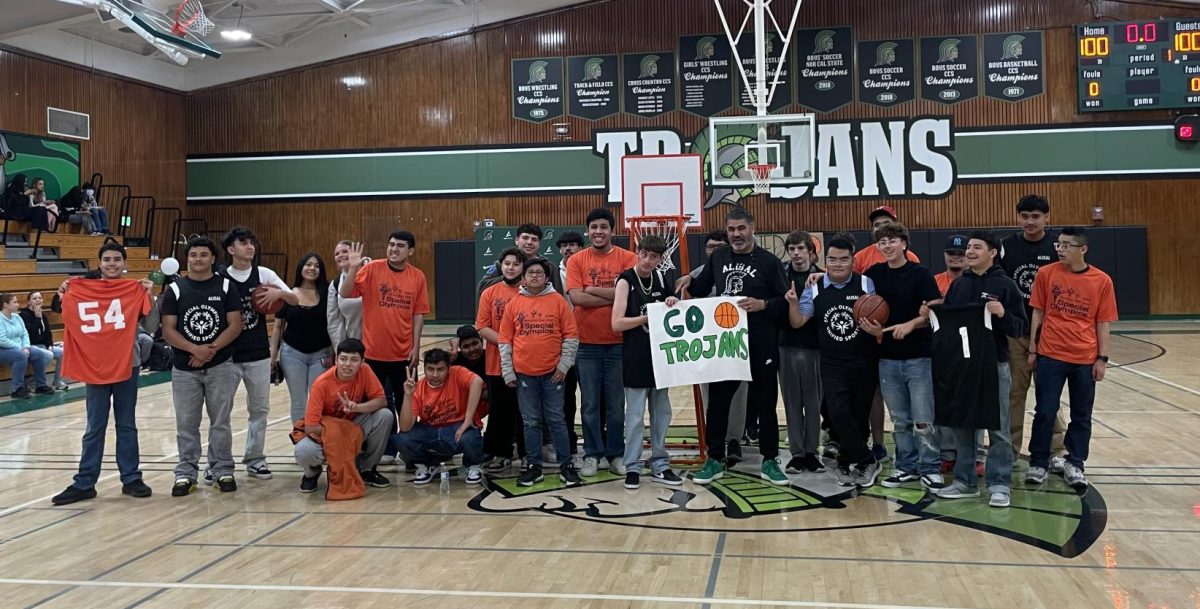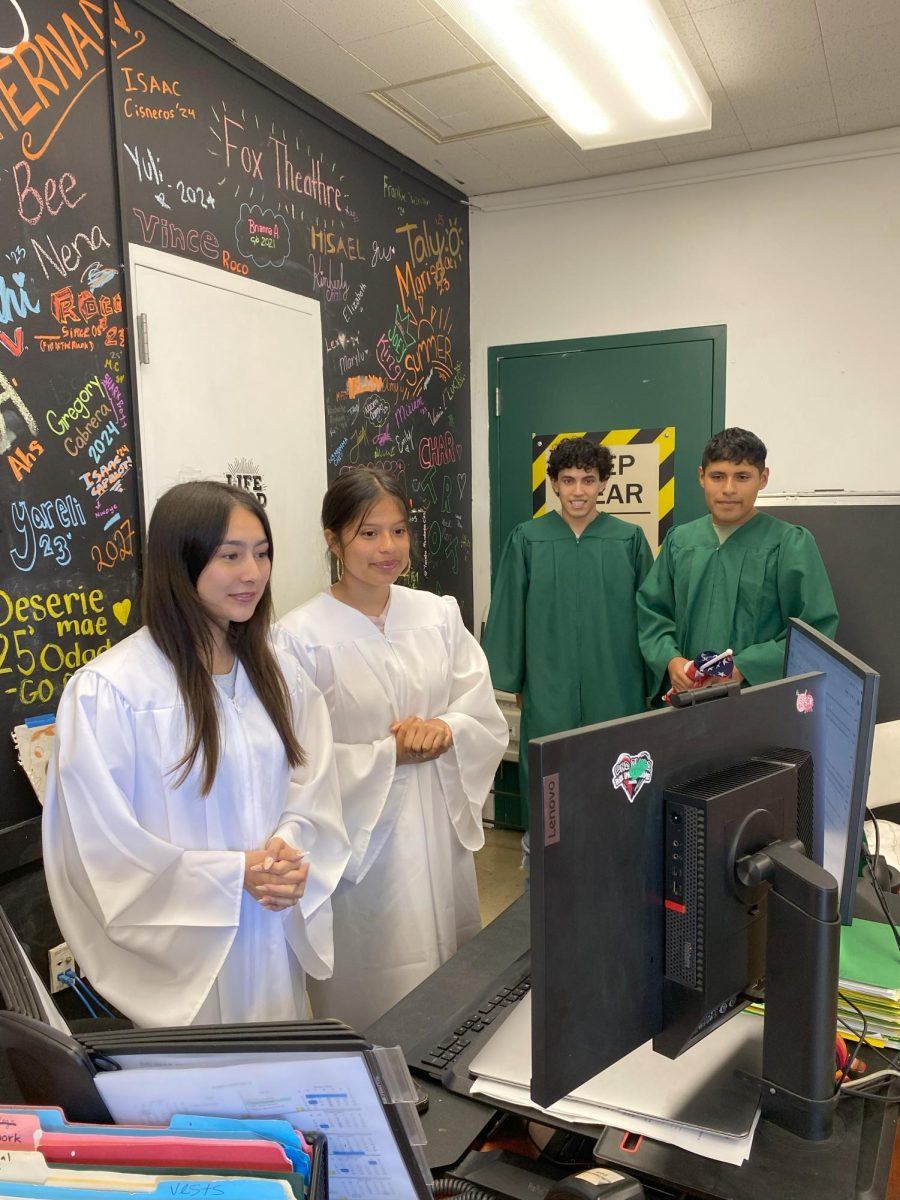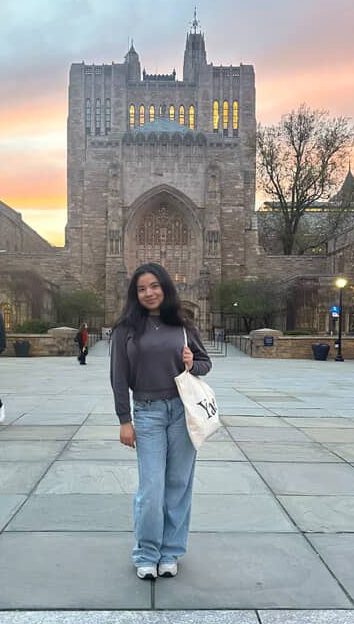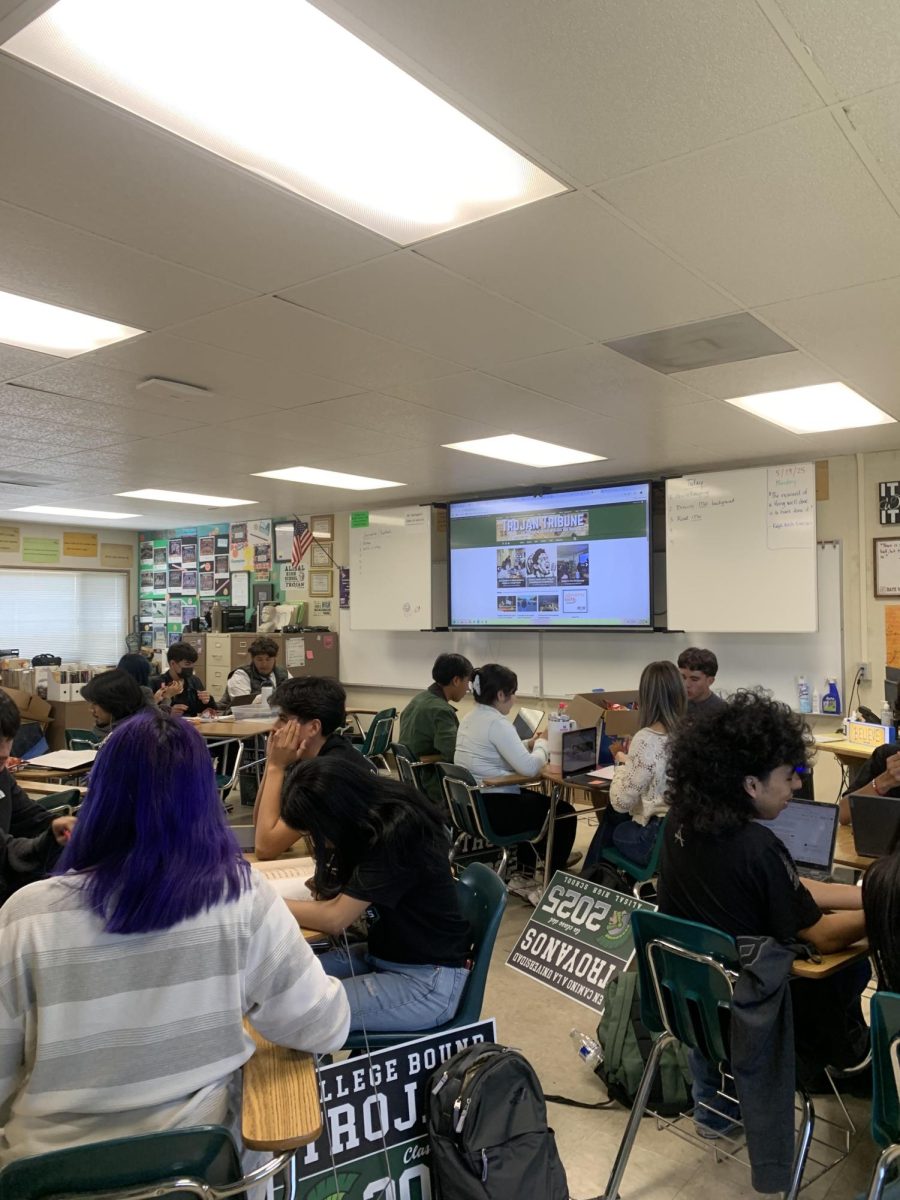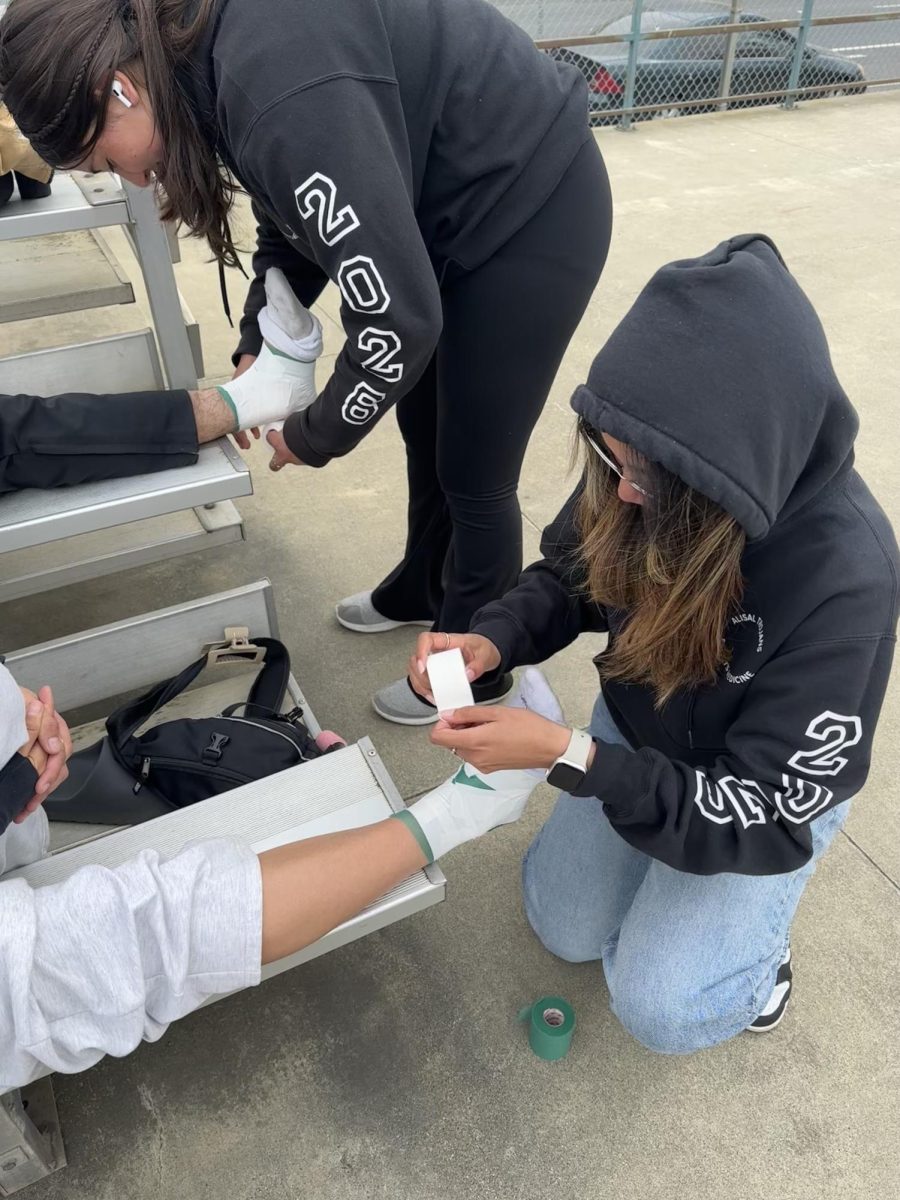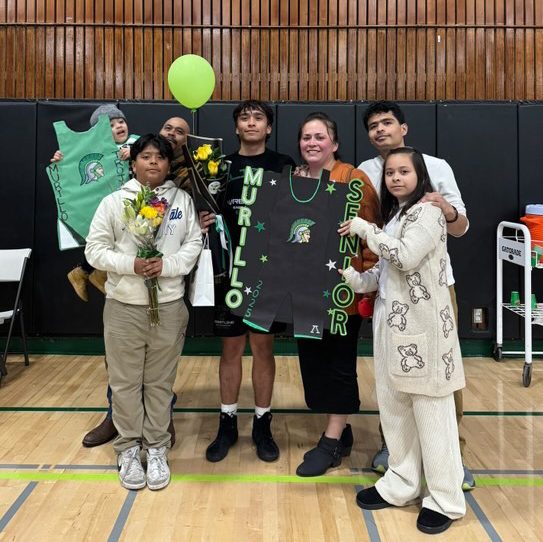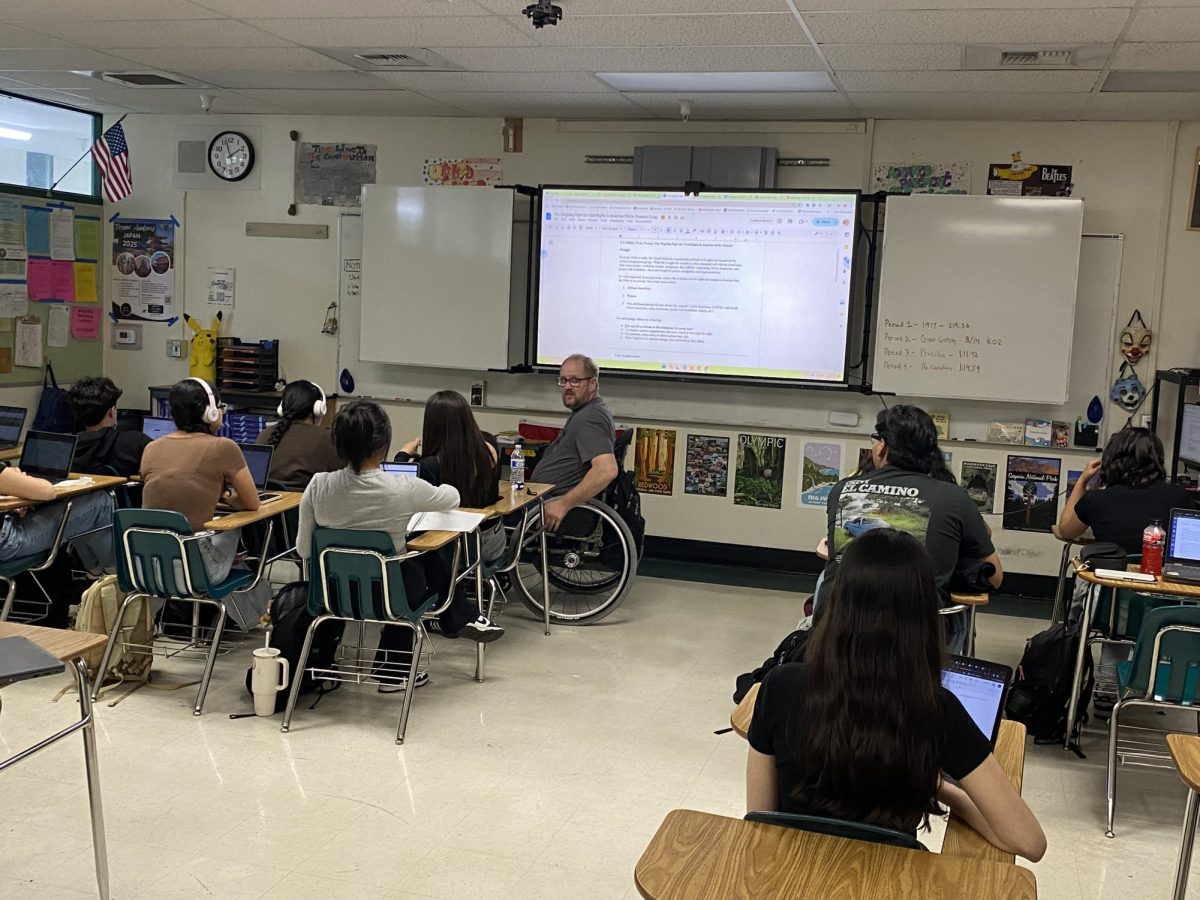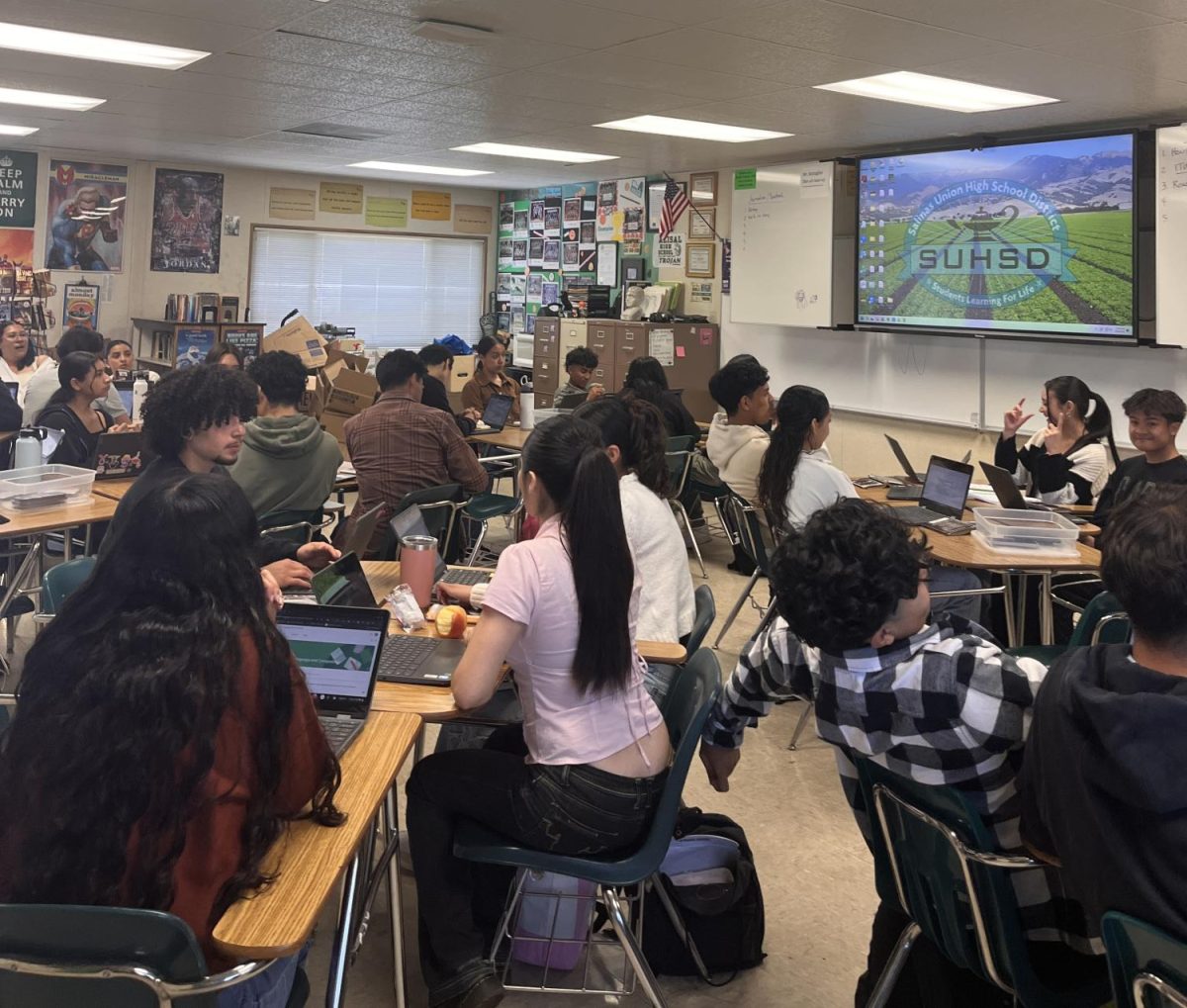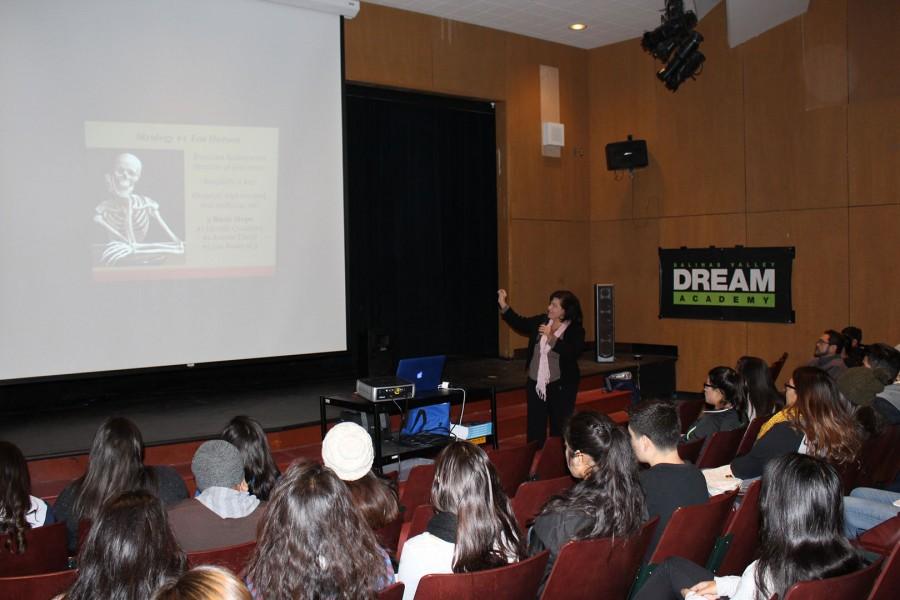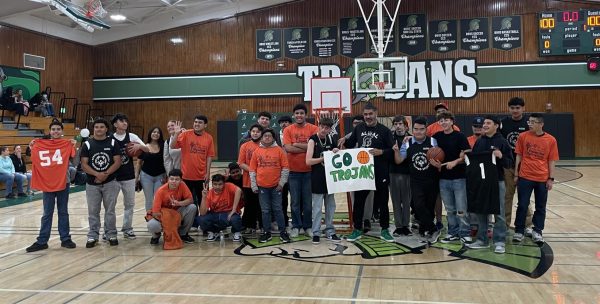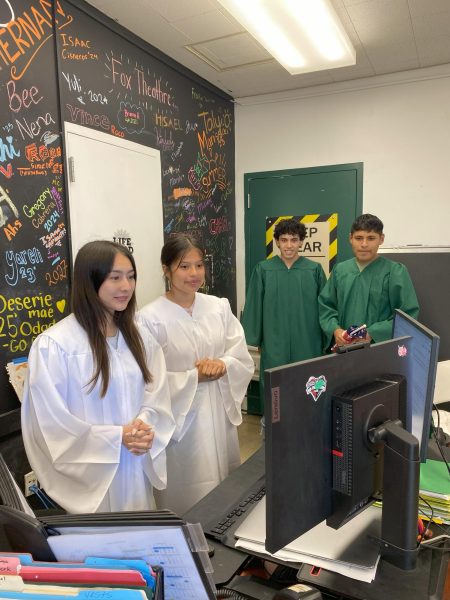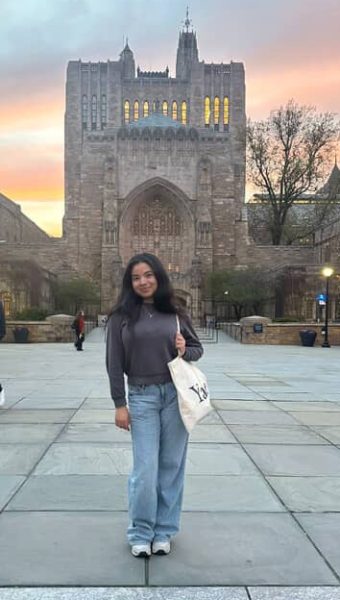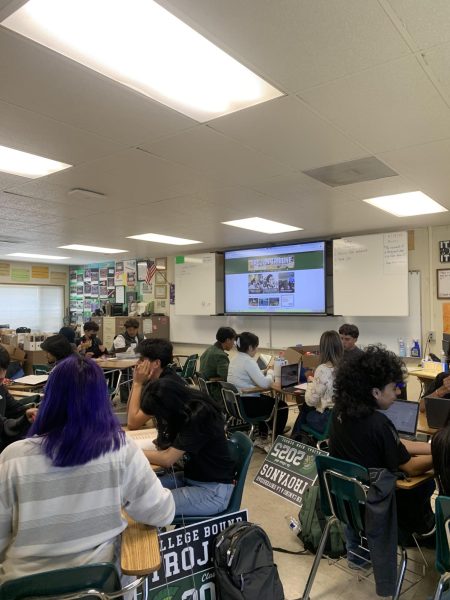Nailing the Personal Statement
Roxanne Ocampo shares with the students her strategy called Los Huesos, the bones, that guarantees a compelling personal statement for college applications.
Despite students being on vacation, Ocampo came to Alisal on Tuesday, November 24th, to help students with their personal statements. During the workshop, Ocampo focused on the second prompt that asks students to describe a personal quality that they’re proud of.
Ocampo explained to the students the strategy she tends to use with her students. “The strategy I use is Los Huesos (the bones). It consists of three basic steps: look at the prompt, identify the question and answer the question.” Ocampo stresses that even though these steps are very clear, students get lost in their writing and forget to answer the question. “Chose a personal quality, talent, accomplishment, contribution or experience but not all. Choose one wisely and focus on that.” Ocampo attested that she has seen students with 4.0’s and high SAT scores struggle with this as well. They go on Thesaurus.com and just throw something together, but nowhere in the essay do they answer the prompt.
One of Ocampo’s essential tips is to stay in your lane. “Don’t go off on a tangent. Just get straight to the point.” She emphasized that a thesis doesn’t have to be intellectually sophisticated but simple and captivating. “Writing these prompts is a process. You’re going to be flushing out and adding to the essay.”
The particular structure she recommends consists of a thesis of 125 words, 3 body paragraphs of 100 words each and a conclusion of 75 words which adds up to a total of 500 words per essay. “Somewhere in the paragraph, remember to state very succinctly what your personal quality is, why it makes you proud, and how it relates to you in three unique ways,” she said.
Another tip that she guarantees will nail personal statements is the power of three. For example, if a prompt to a scholarship asks why one is the best candidate, they have to give them three reasons why. She assures that this is a brilliant strategy and it works. “Human beings love things in three. It sounds definitive, it conveys critical analysis and it doesn’t overwhelm the reader. See? I just did it right there. The power of three.” She also pointed out that students need to realize admissions officers don’t know the context in which the student is writing in. They don’t know their background so the students need to tell them.
Ocampo told students that their obstacles can be advantageous to them. “Letting the UC system know that you’re first-generation boosts your chances of getting in. It tells them that even though you’re first-generation and didn’t have mentors to guide you, you succeeded anyway.” Admissions officers see that a student is involved, is in three different sports and is taking various AP courses. However, admissions officer don’t know why the student is doing all of that so it is the student’s job to provide them with that context.
Ocampo also referred to students of traditional parents, parents who are close-minded to letting students get involved in extracurricular activities at school. “Explain to the reader why you couldn’t be involved. You had to go home and weren’t able to stay after school because you had to go pick up your little brothers and sisters. You had a lot of obstacles but you overcame them because of your competitive spirit.”
Letting the readers know what a student did in high school to succeed gives the UC’s the idea that the student will continue to accomplish those things at their campus. “Students need to write compelling and organized essays. Don’t make them(the readers) search for your thesis. Make it easy to follow, don’t make your reader guess and make a convincing argument.”
The last advice that Ocampo highlighted was how to strategically use the four fee waivers that students who qualify receive. “You only get four opportunities to get into a UC campus. Unfortunately, students apply to colleges that don’t match their profile. They apply to the top UC campuses but don’t meet the requirements.” Though her intentions are not to discourage students, she wants them to apply to a fitting campus and not to a campus because of its name. “It’s not impossible to get accepted to these prestigious schools without meeting all the requirements but the odds are there.” Students should use one of their fee waivers to their dream school but the other three should be closely aligned to a student’s academic profile. “I want to see all my students smiling when they get their acceptance letters.”
Senior Anthony Calata attended the workshop in hopes of improving his personal statement. “I found the workshop very helpful. Before hearing Mrs. Ocampo speak, I was unsure what elements would best fit in my college essay. I had a draft prior to the workshop but I sensed it needed some more juice.” Though he had a few days before the UC application deadline, he made drastic changes to his personal statement. “I made my essays WAY more focused and better organized. With the strategies that she gave us, I was able to structure my college essay to a point where I felt it was both coherent and effective.”
Another senior who found the workshop very helpful was Senior Evelyn Navar. “I am very grateful that I had the opportunity to meet Mrs. Ocampo. She gave us her college admission expertise.” Specifically, Navar found the strategies for prompt 2 very useful. “By showing us how the ‘Los Huesos’ strategy works to structure our essays, I was able to format my personal statement to be more compelling.”
Both seniors are looking forward to see if they were accepted to the schools they applied. “I am feeling more confident about my applications,” Calata states.
At the end of the workshop, Ocampo also reminded the students that there are 4,000 colleges in the U.S. alone. Therefore, students shouldn’t settle for a college because of its name. Other colleges have higher acceptance rates and can even offer students stellar financial packages.
With this in mind, Ocampo hopes to come back to continue helping teachers and students learn the process of composing compelling personal statements.
Your donation will support the student journalists of Alisal High School. Your contribution will allow us to purchase equipment and cover our annual website hosting costs.

